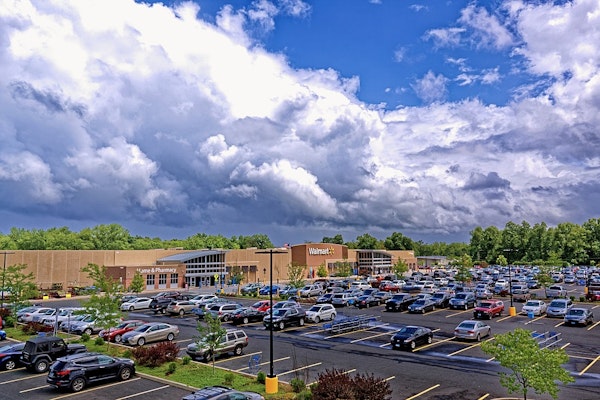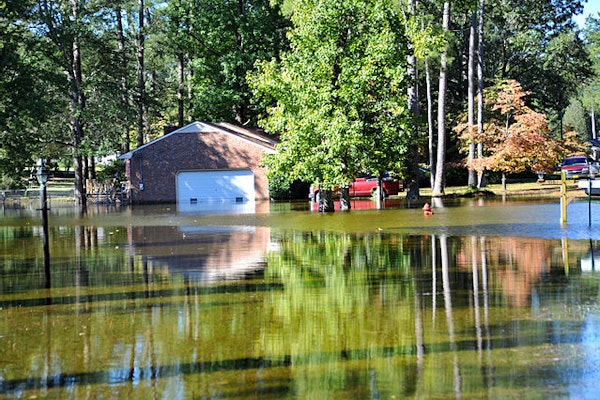
The Insurance Revolution: Personalized Policies and Near-Instant Claim Approvals
Insurance companies are adopting AI, blockchain, and automation to simplify claims processes, aiming to deliver personalized policies and faster approvals for customers.
January 6, 2025
Auto
Risk Management
Technology

US Sanctions Chinese Cybersecurity Firm Over Ties to State-Sponsored Hacking
The Treasury has sanctioned Beijing-based Integrity Tech for supporting Flax Typhoon, a state-sponsored cyber group linked to U.S. critical infrastructure breaches.
January 6, 2025
Legislation & Regulation
Liability
Risk Management
Technology

Hawaii Faces Calls to End Illegal Fireworks After Deadly Explosions
Recent tragedies highlight the dangers of illegal fireworks in Hawaii, leading officials and residents to debate stronger enforcement measures and cultural traditions.
January 6, 2025
Catastrophe
Legislation & Regulation
Property
Risk Management
Arizona
Hawaii

Florida Condo Owners Brace for Higher Costs Amid New Safety Rules
Florida’s condo owners confront rising fees due to stricter safety laws aimed at preventing disasters like the 2021 Surfside collapse, with inspections, reserve funding, and insurance costs at the forefront.
January 6, 2025
Insurance Industry
Legislation & Regulation
Property
Risk Management
Florida

CFPB Files Lawsuit Against Walmart and Branch Messenger Over Alleged Payment Violations
The CFPB has accused Walmart and Branch Messenger of coercing gig drivers to use costly deposit accounts and misrepresenting access to wages, resulting in over $10 million in fees.
January 6, 2025
Legislation & Regulation
Litigation
Risk Management
Workers' Compensation

Year-End Tornadoes Spark Surge in Insurance Claims Across Southern States
Severe storms from December 26–29, 2024, caused extensive tornado damage across 10 Southern states, generating over 2,700 insurance claims and highlighting a rising trend in extreme weather events.
January 6, 2025
Catastrophe
Insurance Industry
Property
Risk Management
Alabama
Mississippi
North Carolina
South Carolina
Texas

Worker’s Chocolate Rescue Ends in Denied Compensation Claim
A Virginia worker’s knee injury, sustained while salvaging chocolates from his employer’s delivery truck, was deemed outside the scope of employment by the Workers’ Compensation Commission.
January 6, 2025
Liability
Litigation
Risk Management
Workers' Compensation
Virginia

How AI is Revolutionizing Insurance in 2025
The insurance industry is entering a transformative era as AI moves from isolated pilots to enterprise-wide implementations, reshaping claims, customer service, and underwriting processes.
January 6, 2025
Insurance Industry
Property
Risk Management
Technology

Workplace Fatalities in the U.S. Decline in 2023 Amid Persistent Risks
The U.S. saw a 3.7% decline in workplace fatalities in 2023, with transportation incidents, falls, and violent acts remaining significant contributors to workplace injuries and deaths.
January 3, 2025
Legislation & Regulation
Liability
Risk Management
Workers' Compensation

Senior Treasury Officials’ Computers Hacked in Cybersecurity Breach
Chinese state-backed hackers reportedly accessed unclassified files on senior U.S. Treasury leaders’ computers in a major breach involving a federal software provider.
January 3, 2025
Insurance Industry
Litigation
Risk Management
Technology

Classic Car Owners Struggle as Auto Insurance Costs Skyrocket
Classic car enthusiasts face rising insurance premiums, with rates climbing six times faster than inflation, leaving many overpaying for insufficient coverage.
January 3, 2025
Auto
Insurance Industry
Liability
Risk Management

Global Flood Losses in 2024 Reach $18.2 Billion as CRESTA Integrates Into PERILS
Flooding caused 78% of global catastrophe losses in 2024, totaling $18.2 billion. CRESTA integrates its loss index into PERILS for streamlined reporting starting January 2025.
January 3, 2025
Catastrophe
Insurance Industry
Risk Management
Technology

California Mandates Increased Home Insurance in Wildfire Zones
California introduces new regulations requiring insurers to increase home coverage in wildfire-prone areas, aiming to stabilize the insurance market and support homeowners.
January 3, 2025
Catastrophe
Legislation & Regulation
Property
Risk Management
California

The Insurance Gold Rush: How Digital Nomads Are Redefining Global Coverage
The rise of remote work and international hiring is driving innovation and growth in commercial insurance, offering tailored solutions to meet the diverse needs of a global workforce.
January 3, 2025
Insurance Industry
Life & Health
Risk Management
Technology

How New Technology and Standards Are Transforming Insurance Modeling Practices
New accounting standards like IFRS 17, coupled with advanced technologies such as AI, are reshaping insurance modeling, offering operational savings and strategic insights.
January 3, 2025
Insurance Industry
Legislation & Regulation
Risk Management
Technology





